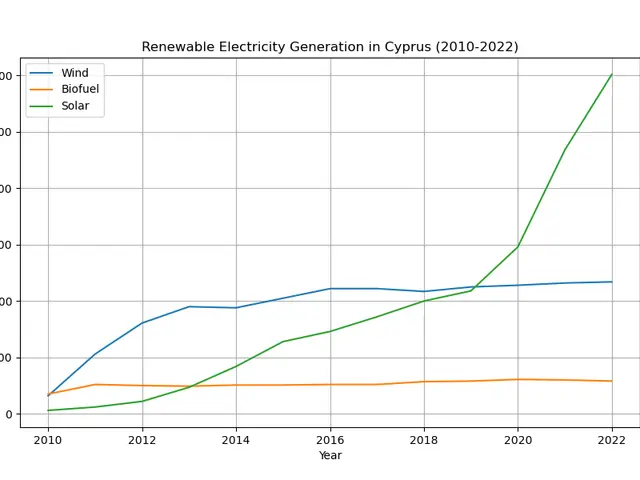Revised Canada-China Relations in the Age of Trade Wars: Canada Seeks Greater Collaboration with China, Away from Trump's Tariff Battle
Increased prospect for Canada to deepen ties with China, as ongoing U.S. tensions may prolong: experts' viewpoint
In these turbulent times of trade stands-offs, Canada is exploring deeper ties with China in strategic sectors, such as electric vehicles (EVs), technology, and critical minerals. Here's a rundown of the evolving situation:
The Electric Vehicle Dance
- Technology Swap: Analysts foresee Canada negotiating access to the Chinese EV market, giving something in return - advanced battery and EV technologies, enabling Canadian manufacturers to produce affordable EVs that capitalize on Chinese breakthroughs like six-minute fast-charging batteries.
- Incentives for Chinese OEMs: Proposals are in the works to invite Chinese automakers, like BYD and XPeng, to establish plants in Canada. This move aims to meet the federal mandate of a 60% EV sales ratio by 2030, a target that seems impossible without Chinese investment.
- Thoughtful Tariffs: While Canada currently imposes a 100% surtax on Chinese EVs (to be effective from September 2024), discussions are underway regarding conditional tariff reductions, contingent upon Chinese firms localizing production or sharing technologies.
The Chase for Critical Minerals and Supplies
Canada's lithium, cobalt, and nickel reserves make it a significant player in the global EV battery supply chain. Partnerships with China could harness its processing expertise while ensuring mineral security. Although details on recent deals are scarce in the current reporting, the potential benefits are clear.
The Geopolitical Tango
The push for greater EV collaboration comes amidst US protectionism and Trump-era tariffs jeopardizing Canada’s auto sector. Analysts argue that Canada needs to diversify beyond the US market, with EV cooperation offering an attractive alternative, despite political sensitivities. Ongoing US-Canada tensions over Chinese tech bans, like Huawei's 5G exclusion, complicate but don’t preclude sector-specific deals.
Policy Ping-Pong
Recent developments suggest a dual approach: maintaining defensive measures while actively pursuing targeted cooperation in green tech. This strategy aims to secure Chinese investment and know-how without compromising domestic industries or their climate goals.
As Canada navigates this fragile trade balance with the US and China, one thing becomes crystal clear - change is in the air. By fostering strategic partnerships in electric vehicles, technology, and critical minerals, Canada may position itself as a global contender in the race towards a cleaner, more sustainable future.
- Amidst the escalating trade pressures between countries, diplomacy plays a crucial role in Canada's pursuit of a more collaborative relationship with China, particularly in strategic sectors like electric vehicles, technology, and critical minerals.
- In light of the US politics and protectionist policies under the Trump administration, Canada sees the opportunity to reduce its reliance on the American market through strategic partnerships with China in the EV sector, despite potential political sensitivities.
- With the federal mandate of a 60% EV sales ratio by 2030, Canadian policymakers are considering pragmatic tariff policies that could incentivize Chinese OEMs like BYD and XPeng to establish plants in Canada.
- As part of the evolving relationship with China, Canada is exploring a technology swap in the electric vehicle market, offering access to its own market in exchange for advanced battery and EV technologies that can accelerate the production of affordable EVs.
- The ongoing US-Canada tensions over Chinese tech bans, such as Huawei's 5G exclusion, create complications but don't preclude sector-specific deals related to electric vehicles, technology, and critical minerals.
- Embracing realistic and pragmatic policies, Canada aims to harness its lithium, cobalt, and nickel reserves in conjunction with China's processing expertise, ensuring mineral security and positioning itself as a global contender in the race towards a cleaner, more sustainable future.








